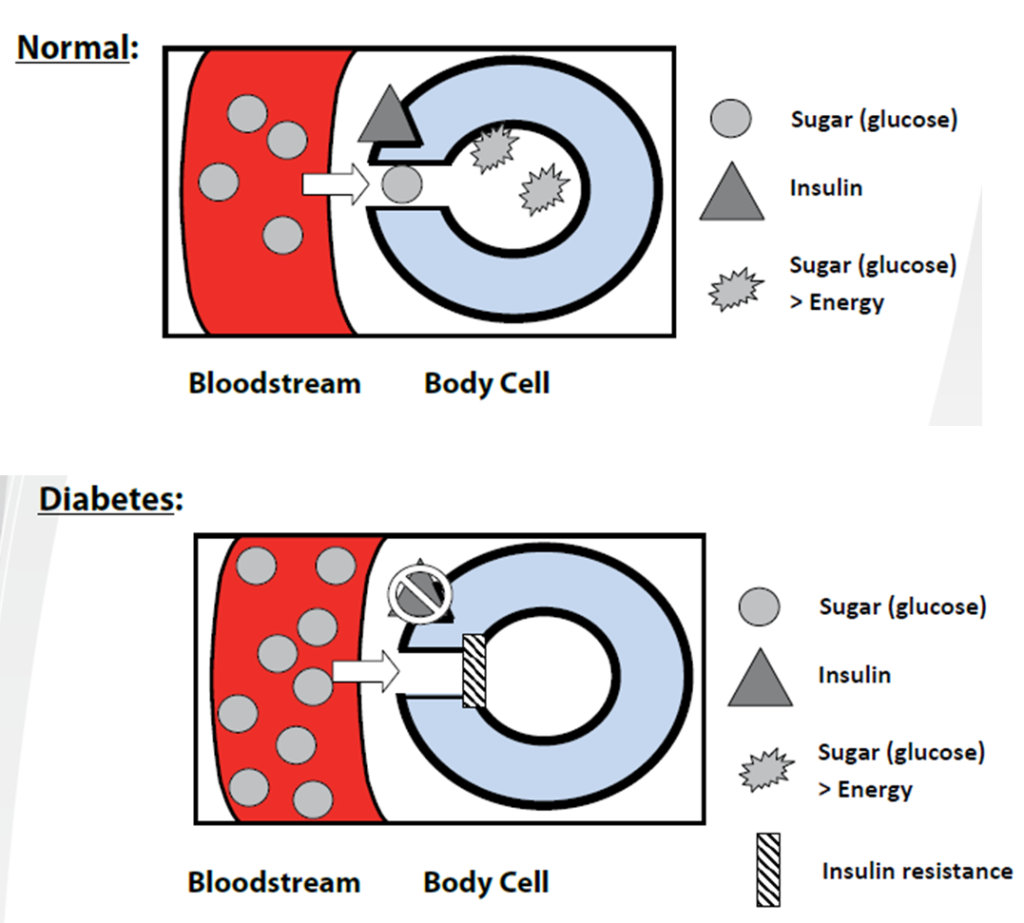Diabetes is a chronic (lifelong) condition that makes it difficult for your body to regulate the sugar (glucose) in your blood and without treatment can result in serious health problems. Among adults, diabetes is the leading cause of new cases of blindness, kidney failure, and amputation. It is also associated with high blood pressure, obesity, high cholesterol, heart disease, and stroke. Anyone can develop diabetes.

The good news is that you can prevent or delay the complications of diabetes by taking part in regular physical activity, following a healthy meal plan, and when necessary, taking medications. Diabetes education is a valuable resource. Your provider can connect you to a diabetes educator who can help you make lifestyle changes to help control your diabetes.
Our bodies use sugar (glucose) for energy. Most of the sugar we need comes from the foods we eat. When food is digested, insulin helps move sugar from the bloodstream into the body’s cells to be used for energy.
What are the different types of diabetes?
Type 1 diabetes used to be called juvenile diabetes. Half of all people diagnosed with type 1 diabetes are diagnosed during childhood or early teen years. Scientists do not know the exact cause of type 1 diabetes but they believe it is a combination of factors due to a person’s genetics and environment. Scientists know that in people with type 1 diabetes, their immune system mistakenly destroys the cells of the pancreas that produce insulin.
People with type 1 diabetes must take insulin. Therefore, insulin injections play a big role in the diabetes care plan. Food choices and exercise are also very important in keeping sugar (glucose) levels within a healthy range.
Most people (about 95%) with diabetes have type 2 diabetes. Type 2 diabetes tends to develop in people over 40. It used to be called adult-onset diabetes.
Initially, people with type 2 diabetes usually make insulin; unlike people with type 1 diabetes, who stop making insulin once their diabetes fully develops.
